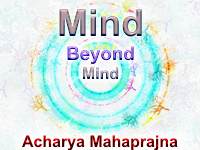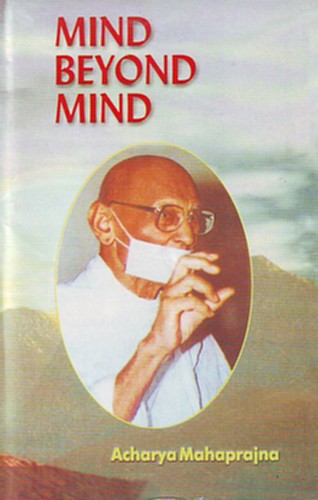
An American poet-philosopher was walking in a street. Suddenly the sky became overcast and it began to rain. The poet had a notebook in his pocket and he had scribbled a few poems on its pages. He was afraid that it might be spoiled in the rain. He went to a shopkeeper and handed over to him the notebook saying, 'Please keep it with you. It might be spoiled in the rain. I shall collect it from you tomorrow.' Next day when he came to the shopkeeper to collect his notebook, he found to his surprise that the latter was tearing pages from it and using them in making packets for the customers to hold small commodities he sold to them. When asked by the poet as to why he was spoiling the notebook, the shopkeeper replied, 'Don't worry. I am tearing only those pages on which something had been scribbled and which are, therefore, useless. All the plain pages are intact.'
The pages on which the poet had scribbled some of his poems were the most valuable for him. The shopkeeper, on the other hand, had taken them to be useless for the simple reason that they had been spoiled by scribbling. Our sense organs are like the notebook. Some of them are like the plain pages and others like those on which something has been scribbled. The currents of passions, attachments and aversions which are continuously flowing in our minds mark the sense organs with impressions, leaving a few of them plain. This has been going on for ages.
Some of us take the impressions left on the sense organs by passions etc. to be highly valuable. Like the poet spoken of above, they relish and take satisfaction in the association of their sense organs with the passions. Others, like the shopkeeper, feel that the sense organs are valuable only when they have not been defiled by the passions. These are two different points of view, one represented by the poet and the other by the shopkeeper. For the latter the pages on which something had been scribbled were useless because nothing more could be scribbled on them. But for the former these very pages were useful because they contained the cherished products of his imagination. For one given to sense pleasures, the association of the sense organs with the passions is something worth preserving. For one given to Sadhana, freedom of the sense organs from their association with the passions is the only valuable thing. He would see to it that the passions were in no way mixed up with the sense organs and the perceptions resulting from them. Control of the sense organs is nothing but the separation of the sense organs from the passions so that they do not defile our perceptions and produce pleasure and pain.
In the history of Indian Yoga we come across two schools of thought. One school says that we should not allow the sense organs to perform their functions so that the pleasures and pains they produce in collaboration with the passions may be avoided. It tells us not to see with the eyes, not to hear with the ears, not to taste with the tongue and so on. It insists on not eating delicacies. This amounts to a deliberate suppression of the sense organs and their normal functions. The other school holds quite the opposite view. It says, 'Let us see, hear, smell, taste, and touch anything we like to. The only thing you have to do is not to allow the passions to colour your perceptions'. The first school advocates suppression of the sense organ, the other the suppression of the mental attitudes. They are attitudes basically different from each other. I would not like to advocate any of the two views. Both have their own importance and values.
There is an anecdote, which is highly instructive in this connection. Two persons approached an ascetic separately. The first asked, 'Is it necessary to renounce the family and home in order to attain salvation?' The ascetic replied, 'No, not at all. You may live in your home with your family and endeavour to attain salvation. The mythical king Janaka became a Videha (a man without a body) even while he lived with his family and administered the state. Bharata achieved perfect knowledge while living in Adarsagrha. Rsabha's mother, Marudeva achieved liberation even without becoming a nun.' After a few days the other man came to the ascetic and asked, 'Is it not necessary to renounce the family in order to attain salvation?' The ascetic replied: 'It is absolutely necessary. Look at the example of Sukhadeva. He could not have attained liberation without becoming an ascetic. Why should have thousands and thousands of people become ascetics, if they could achieve salvation otherwise. Why should have these ascetics lived a life of extreme privation in the forests? You can achieve liberation only through asceticism.'
The two persons met each other accidentally and were surprised to learn that the ascetic had given them two mutually contradictory answers. They decided to seek a clarification from the ascetic and approached him. The ascetic told them that both of them were simpletons and had misunderstood him. He said to the first man, 'Look here. I could very well understand from your question that you were not inclined to leave the family. You are, therefore, fit to take to Sadhana only while living with your family.' To the second he said, T could very well understand from your question that you were inclined to become an ascetic and I advised you accordingly.' It depends on the inclination and aptitude of a man whether he can achieve his end in Sadhana by renouncing the world or by remaining a householder.
Some people speak of keeping the eyes closed for a few hours daily, because they say that if you saw things you are bound to be attracted towards them. It is very difficult not to be enticed by inviting faces. Others say that such an attitude is nothing but the expression of a psychological weakness. It is the function of the eyes to see. Why should we try to interfere with this natural function of the eyes? Charming faces attract us not because we see them, but because we associate beauty with our passions and craving for the sex pleasures. They say that what we should do is to master the passions instead of closing the eyes.
Both the views are correct in their own ways. It depends on the inclination and aptitude of the practitioner to adopt any one. There can be no uniformity of opinion in such matters, and none can be said to be a better way. If your have controlled your passions, you need not keep your eyes shut or stop the sense organs from functioning. Suppression of the sense organs may be necessary for one who has not been able to control his passions and desires.
Take for example the custom of observing purdah. I sometimes wonder why it is women only who keep their faces covered with a veil. Keeping the eyes closed may also be a kind of purdah. The purpose of purdah is to obstruct vision. If you have developed strength of character and if what you see does not arouse passions in your mind, purdah becomes irrelevant.
The above discussion brings us to another point. We have discussed the point of view of suppressing the sense organs and the point of view of not allowing the passions to interfere with the function of the sense organs. There is another thing to note. It consists in merging the sense organs in consciousness. This is called Indriyapratisamlinata. It is a comprehensive way, which combines both the views discussed above.
Our traditional attitude towards the sense organs is based on our ignorance of their functions. Ordinarily we believe that it is the eyes, which see, the ears, which hear and so on. This is, however, wrong. Perceptive knowledge cannot be classified on the basis of the sense organs and their division of functions. As a matter of fact knowledge is indivisible. It is for practical purposes that we have divided knowledge into various classes and disciplines.
 Acharya Mahaprajna
Acharya Mahaprajna

